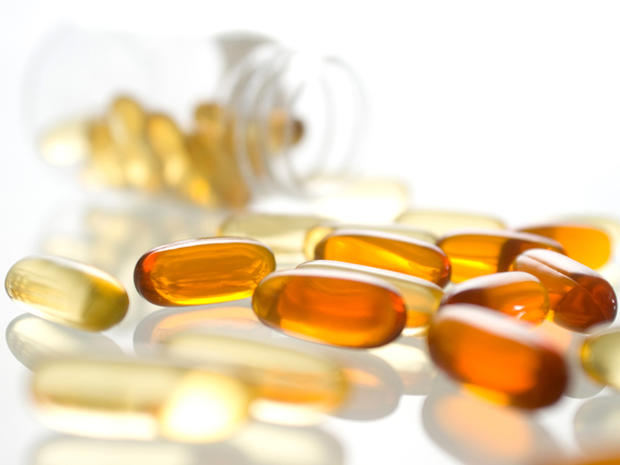Study: Workout supplement may contain meth-like ingredient
Health officials often warn people taking dietary supplements that they may not know everything that's in their shakes, because the products are not subjected to the rigorous testing required by the government for medications.
Now, a Harvard researcher is warning a dietary supplement he tested, called Craze, may contain a meth-like party drug.
"Alarmingly we have found a drug in a mainstream sports supplement that has never been studied in humans," says Dr. Pieter Cohen, an assistant professor of medicine at Harvard Medical School, said in a press release. "The health risk of using supplements adulterated with a drug should not be underestimated."
Scientists looked into the Craze supplement, marketed by Driven Sports, Inc., after it was flagged in several failed drug tests. Cohen teamed up with the independent testing global health organization NSF International to analyze Craze's contents.
What they found was a substance called N,alpha-diethylphenylethylamine (N,a-DEPEA), which the researchers called structurally similar to methamphetamine. Their analysis put the stimulant at a level less potent than methamphetamine, but more potent than ephedra, a stimulant banned by the Food and Drug Administration in 2003 after it was linked to heart attacks.
N,a-DEPEA was not listed on the product's label and may be harmful, according to the researchers. A similar compound however was found on the label: N,N-diethylphenylethylamine, which the company claimed was derived from extract of the dendrobium orchid. Driven Sports' claim that the compound was related to orchids could not be verified by the scientists' testing.
"It might be that manufacturers are not actually using the orchid at all, but rather using the name 'dendrobium' when actually placing pharmaceutical drugs into the supplement," Cohen told Consumer Reports. "It is very likely that some other supplements labeled as containing dendrobium contain this same new drug."
The researchers also found the meth-like compound in a weight loss supplement called Detonate, marketed by Gaspari Nutrition.
Both products are sold in vitamin and supplement retail and online shops.
The study was published Oct. 14 in the journal Drug Testing and Analysis.
Cohen told CBSNews.com in an email he has not personally seen someone harmed from the products, but said he became interested when the new "party drug" was appearing worldwide in the urine tests of athletes claiming to only be taking natural supplements.
"What we're trying to do here is get this product removed before we have the bodies -- trying to avoid what's currently happening in Hawaii with OxyElite Pro (with a) new ingredient introduced leading to multiple patients with liver failure -- so, here we are trying to take a pro-active approach," he said.
The FDA announced last week OxyElite Pro marketed by USPlabs LLC of Dallas, Texas was linked to more than 20 cases of the liver infection hepatitis, with two cases of people needing transplants and one death.
"With that said, there's no effective method to monitor people injured by supplements -- so, it most likely has already occurred and will take us time to put the pieces together," he added.
In July, USA Today investigated Driven Sports after some of the company's weight loss products were found to contain toxic pesticides linked to adverse events including the overdose death of a 17-year-old girl.
The report noted the Craze pre-workout powder was named 2012's "New Supplement of the Year" by bodybuilding.com, but lab tests conducted at the time of the report detected amphetamine-like compounds in the products.
USA Today's report led sites like bodybuilding.com and Walmart.com to suspend product sales, according to the newspaper.
"We have previously provided USA Today with a plethora of data from a DEA Certified Lab indicating the absence of any amphetamine-like compound in Craze," Marc Ullman, an attorney for Driven Sports, told the newspaper Monday. "In light of USA Today's decision to ignore the data we have provided, we respectfully decline to comment for your story."
The latest report spotlights some of the unknowns people face when taking supplements. In addition to the ongoing OxyElite pro concerns, this summer, the FDA found a vitamin B supplement may contain anabolic steroids after about 30 complaints of side effects.
Dietary supplements are not approved by the FDA for safety and effectiveness before they are marketed, and manufactures responsible for reporting any side effects or illnesses stemming from the products to the agency. If a product is found to be unsafe, adulterated or makes misleading health claims, only then can the agency take it off the market.
The FDA offers tips on how to be a "savvy supplement user."
